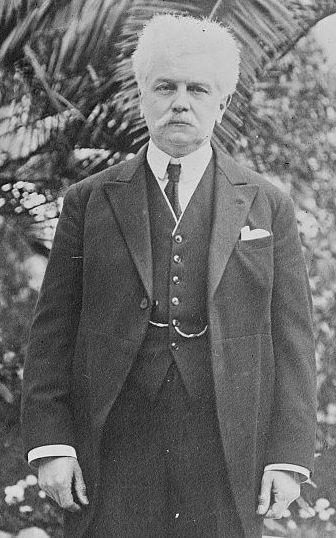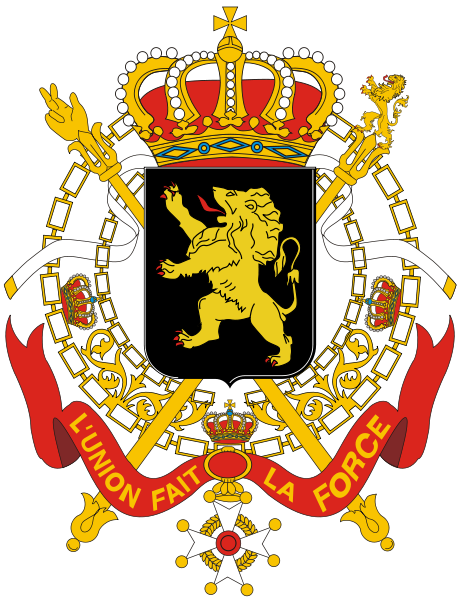<Back to Index>
- Philosopher Abū Abdillāh Muḥammad ibn Alī ibn Muḥammad ibn Arabī, 1165
- Dramatist and Revolutionary Philippe François Nazaire Fabre d'Églantine, 1750
- Prime Minister of Belgium Henri Jaspar, 1870
PAGE SPONSOR


Henri Jaspar (28 July 1870 – 15 February 1939) was a Belgian Catholic Party politician.
Jaspar was born in Schaerbeek and trained as a lawyer. He represented Liège as a Catholic in the Belgian Chamber of Representatives from 1919 until 1936. He helped create the Belgium - Luxembourg Economic Union in 1921, and served as the 27th Prime Minister of Belgium from 1926 to 1931. In 1924 he was made an honorary Minister of State. He held several ministerial positions including Minister of Economic Affairs (1918 - 1920), Foreign Minister (1920 - 1924 and 1934), Minister of Finance (1932 - 1934).
Jaspar came from an old Belgian aristocratic family . After studying law, he earned his Juris Doctor .
From 1919 to 1936 he was a member of the Chamber of Deputies and represent the interests of the Katholieke Partij the district of Liège .
After the First World War he was from November 1918 to November 1920 Cabinet Minister in the Cabinet of Léon Delacroix. As such he reorganized with some success in industry and commerce. In addition, he was briefly Home Secretary in 1920. In the Cabinets of Henri Carton de Wiart and Georges Theunis he was foreign minister from 1920 to 1924. In this position he managed the accession of Belgium to the League of Nations and the Mission to the International Court of Justice in The Hague . Then hewas assigned the royal honorary title of "minister of state". He also was instrumental in bringing about the Belgian - Luxembourg Economic Agreement in 1921. He also was a member of the Belgian delegation to the negotiation of the Dawes Plan in 1924, the reparations governing Germany after the First World War.
On 20 May 1926 he was the successor of Prosper Poullet, himself prime minister of a coalition government with members of the Katholieke Partij , Socialist Party and the Liberal Party.
During his tenure until 6 June 1931, he was also temporarily Minister of Public Health (1926 - 1927), Minister for the Colonies (1927 - 1929 and 1930 - 1931) and again Minister of the Interior (1931).
During his tenure started the global economic crisis, which caused a severe economic and financial crisis in Belgium. Jaspar tried to cope with this crisis by devaluing money, instituting new taxes, converting public debt, nationalizing the railways and financing public works. These efforts to revitalize the economy led to the Black Friday on the 25th October 1929.
In the Cabinet of Charles de Broqueville he was from 22 October 1932 until 20 November 1934 Finance Minister and Foreign Minister briefly in 1934.
In 1939 he was asked to form a government, which was hindered by the refusal of the Socialist Party to join. Thirty - six hours later Jaspar died.
Besides his political duties, he was president of the Child Protection Agency from 1924 to 1939.